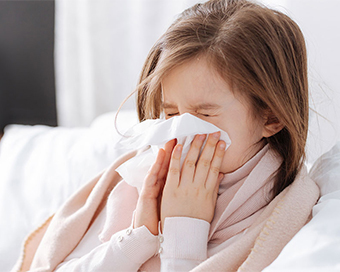Gallery
 PM Modi visit USA
PM Modi visit USA Only the mirror in my washroom and phone gallery see the crazy me : Sara Khan
Only the mirror in my washroom and phone gallery see the crazy me : Sara Khan Karnataka rain fury: Photos of flooded streets, uprooted trees
Karnataka rain fury: Photos of flooded streets, uprooted trees Cannes 2022: Deepika Padukone stuns at the French Riviera in Sabyasachi outfit
Cannes 2022: Deepika Padukone stuns at the French Riviera in Sabyasachi outfit Ranbir Kapoor And Alia Bhatt's Wedding Pics - Sealed With A Kiss
Ranbir Kapoor And Alia Bhatt's Wedding Pics - Sealed With A Kiss Oscars 2022: Every Academy Award Winner
Oscars 2022: Every Academy Award Winner Shane Warne (1969-2022): Australian cricket legend's life in pictures
Shane Warne (1969-2022): Australian cricket legend's life in pictures Photos: What Russia's invasion of Ukraine looks like on the ground
Photos: What Russia's invasion of Ukraine looks like on the ground Lata Mangeshkar (1929-2022): A pictorial tribute to the 'Nightingale of India'
Lata Mangeshkar (1929-2022): A pictorial tribute to the 'Nightingale of India' PM Modi unveils 216-feet tall Statue of Equality in Hyderabad (PHOTOS)
PM Modi unveils 216-feet tall Statue of Equality in Hyderabad (PHOTOS)The Badminton Association of India (BAI) has announced a 14-member-strong India squad for
- Men’s Sr Hockey Nationals to be played in division-based format from April 4
- Mensik denies Djokovic 100th title in Miami final
- KIPG: Son of a vegetable vendor, Bihar’s Jhandu Kumar eyes Worlds, 2028 Paralympics
- Hardik Singh credits hard work and team unity for receiving HI Midfielder of the Year award
- Djokovic, Alcaraz land in same half of Miami draw
Zinc can prevent common cold, flu-like illnesses: Study Last Updated : 03 Nov 2021 01:42:41 PM IST 
Zinc can prevent symptoms and shorten the duration of a community-acquired acute viral respiratory tract infections, such as the common cold and flu-like illnesses, according to a study.
Rhinovirus is one of the most common causes of upper respiratory tract infections. Other common respiratory viruses include adenovirus, parainfluenza virus, and influenza virus.The study, published in BMJ Open included 28 randomised controlled trials, with 5,446 adult participants of all age groups.Zinc lowered (28 per cent) risk of contracting symptoms consistent with the common cold and contracting a flu-like illness (68 per cent). However, the protective effects of zinc were insignificant (4 per cent lower risk) when participants were purposely infected with human rhinovirus.Further, zinc also shortened the duration of symptoms by around two days and reduced day 3 symptomatic severity around the peak of illness, but the reduction in overall symptom severity were insignificant.While there was an increased risk of non-serious adverse events that may limit tolerability for some (such as nausea or mouth and nasal irritation), the risk of serious adverse events (such as copper deficiency from oral zinc and loss of smell from zinc nasal sprays and gels) was low.However, "we cannot assume the results apply to Covid-19", said lead author Jennifer Hunter, Associate Professor at Western Sydney University's NICM Health Research Institute."It is commonly thought that zinc's role in preventing and treating infections is only for people who are zinc deficient; our findings really challenge this notion," she added.The team also highlighted in their findings the challenges around the variability of zinc formulations and doses, and their mechanisms of action."At the moment there just isn't enough research to say whether a zinc nasal spray, versus a nasal gel, versus a lozenge, versus oral zinc is any better or worse than the others. Most of the trials used zinc gluconate or zinc acetate formulations, but that doesn't mean that other zinc compounds are less effective," Hunter said.Despite these uncertainties, Hunter said zinc products are widely available, affordable, and generally safe, including the short-term use of high dose zinc lozenges and capsules that was used in many of the trials.IANS Sydney For Latest Updates Please-
Join us on
Follow us on








172.31.16.186







